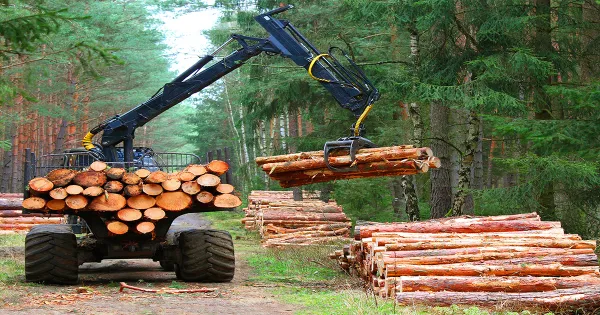When it comes to investing in forestry equipment, the process isn’t as simple as picking a machine and signing a cheque. These are high-value purchases that have long-term implications for the productivity, safety, and profitability of your forestry operations. Whether you’re purchasing a harvester, skidder, feller buncher, or wood chipper, choosing the right dealer is just as important as choosing the right equipment.
To make the most informed decision, it’s essential to ask the right questions. Here are the top questions to ask your forestry equipment dealer before making a purchase.
1. What Equipment Do You Recommend For My Specific Needs?
Not all forestry operations are the same. Your equipment needs may differ based on the terrain, tree species, and the scale of your operation. A trustworthy vendor will take the time to learn about your unique problems and suggest equipment that fits your workload and surroundings. Be wary of dealers who push certain machines without first understanding your requirements.
2. Is The Equipment New, Used, Or Refurbished?
This might seem like a basic question, but it’s crucial—especially if you’re trying to manage costs. Although new equipment is more expensive, it delivers the newest technologies and warranties. Used or refurbished equipment might be more affordable, but could carry unknown risks. Ask about the machine’s usage history, maintenance records, and any parts that have been replaced. Also, confirm if a refurbished machine has been inspected and tested to meet factory standards.
3. What Warranty And Service Support Do You Provide?
Forestry equipment undergoes intense use, often in harsh environments. So, it’s essential to know what type of warranty the dealer offers and how issues will be handled if they arise. Inquire about the warranty’s duration, coverage, and whether parts and labor are included. Additionally, inquire about the dealer’s after-sales service network. Do they offer on-site support? Are technicians readily available? Can they supply spare parts quickly? Reliable service support can make a significant difference in minimizing downtime.
4. What Are The Financing Options Available?
Forestry equipment is a substantial investment, and not all buyers can afford to pay upfront. A good dealer will offer flexible financing options, including lease agreements, installment plans, or third-party lending partnerships. Ask about interest rates, loan terms, down payments, and any hidden fees. Understanding your financial commitment helps you plan better and avoid unexpected costs.
5. Can I See The Equipment In Action Or Schedule A Demo?
Seeing is believing. Before finalizing your purchase, ask the dealer if you can see the equipment in action or arrange a live demonstration. Some dealers have demo units available or might be willing to set up a trial at your job site. Observing the machine’s performance, ease of use, and fuel efficiency will give you greater confidence in your purchase decision.
6. How Do You Handle Spare Parts And Repairs?
Downtime can be costly in the forestry business. Before buying, understand the dealer’s capabilities when it comes to supplying spare parts and handling repairs. Ask whether parts are stocked locally or need to be ordered from overseas. Are repairs handled in-house, or outsourced to third-party mechanics? How long do typical repairs take? A dependable dealer will have a robust logistics system for parts and a skilled repair team on standby.
7. What Is Your Reputation In The Industry?
The credibility of a dealer speaks volumes about the quality of service and equipment they provide. Look into the dealer’s history, customer reviews, and professional affiliations. Never be afraid to approach previous clients for recommendations or case studies. A trustworthy dealer should be transparent and proud of their track record. Industry reputation is often a more reliable indicator than price tags.
8. Do You Offer Operator Training Or Safety Guidance?
Some dealers go the extra mile by providing operator training or safety workshops when purchasing new equipment. This is especially valuable if your team is unfamiliar with a particular brand or model. Well-trained operators not only extend the life of your machinery but also reduce the risk of accidents on the job. If training isn’t included, ask whether it can be arranged or recommended through partner providers.
9. What Is The Total Cost Of Ownership Over Time?
It’s easy to get caught up in the sticker price, but that doesn’t tell the whole story. Ask your dealer to break down the long-term cost of ownership—including maintenance, fuel consumption, spare parts, insurance, and depreciation. Some equipment may be cheaper upfront but costlier to maintain. Others may have higher resale value or lower fuel costs, making them a smarter investment over time.
10. Do You Offer Trade-In Programs Or Equipment Upgrades?
Forestry operations evolve, and so do equipment needs. Ask your dealer if they offer trade-in programs that allow you to upgrade machinery as your business grows. This can help you stay competitive without the financial burden of starting from scratch. Dealers who offer flexible upgrade paths show that they’re interested in long-term relationships, not just one-off sales.
Final Thoughts
Buying forestry equipment is a significant decision, and your relationship with the dealer doesn’t end after the sale. A good dealer will serve as a long-term partner, providing equipment support, training, parts, and financing solutions. You can prevent expensive errors and make sure your investment is in line with your operational objectives by posing the appropriate questions up front. Choose wisely, and your equipment will serve you faithfully for years to come.
